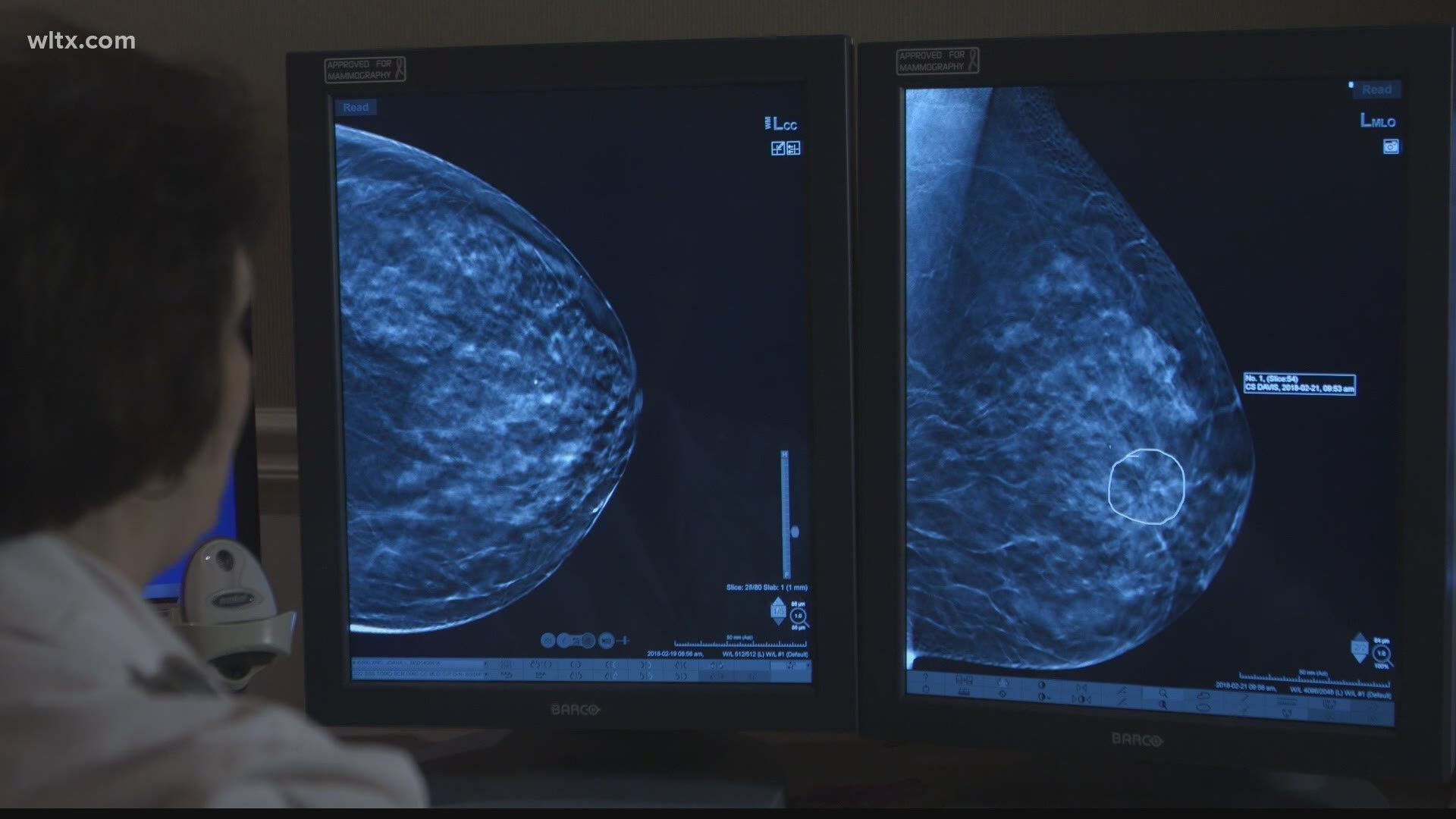LEXINGTON, S.C. — Libby Wessinger has been a nurse for almost twenty years. Growing up, she was surrounded by family members in the medical field: Her father was a paramedic for many years and she had two cousins who were nurses. She says there was really no doubt about what she wanted to do in life--she wanted to be a nurse.
As a wife and mother, she keeps a very hectic schedule. Her children are 14, 11 and almost 5 years old. Her two boys and her daughter race dirt bikes or four wheelers competitively so there's always something that keeps them busy.
As a healthcare professional, she understands the importance of maintaining her health and that includes scheduling her annual mammogram. She started the annual tests about four years ago after her aunt was diagnosed with the disease. She believes she did everything she could to reduce her risk of developing the disease. “I breastfed my children. I never took hormones. I never took birth control pills,” she said.
For three years her results were negative but around this time last year Wessinger received a call that would change her life: she was diagnosed with breast cancer. The diagnosis was invasive ductal carcinoma, the most common type of breast cancer. The doctors told her it was stage 1, meaning it was most likely contained to the area where the first abnormal cells began to develop. The call was a shock because she felt like she'd done everything right up until this point to prevent the disease. The good news is doctors were able to find her 9 millimeter mass very early. Her treatment plan included surgery, radiation but no chemotherapy.
Doctors say Wessinger's prognosis is good and it's because her cancer was detected early. Less than two weeks after her diagnosis, Wessinger had surgery to remove the mass. According to Lexington Medical Center, "a 3-D mammogram provides the clearest, most detailed view of breast tissue possible, detecting lesions as small as two millimeters."
As a nurse at Lexington Medical Center Irmo Urgent Care, Wessinger says that she doesn't "even want to think about what could have happened" if she had skipped a year without her mammogram.
Wessinger underwent genetic testing because of her family history of the disease. Testing determined her cancer was not genetic, it was hormone fed. Wessinger's advice to anyone hesitating about scheduling their mammogram is simple: "Five minutes of being uncomfortable can save you twenty years with your family."

